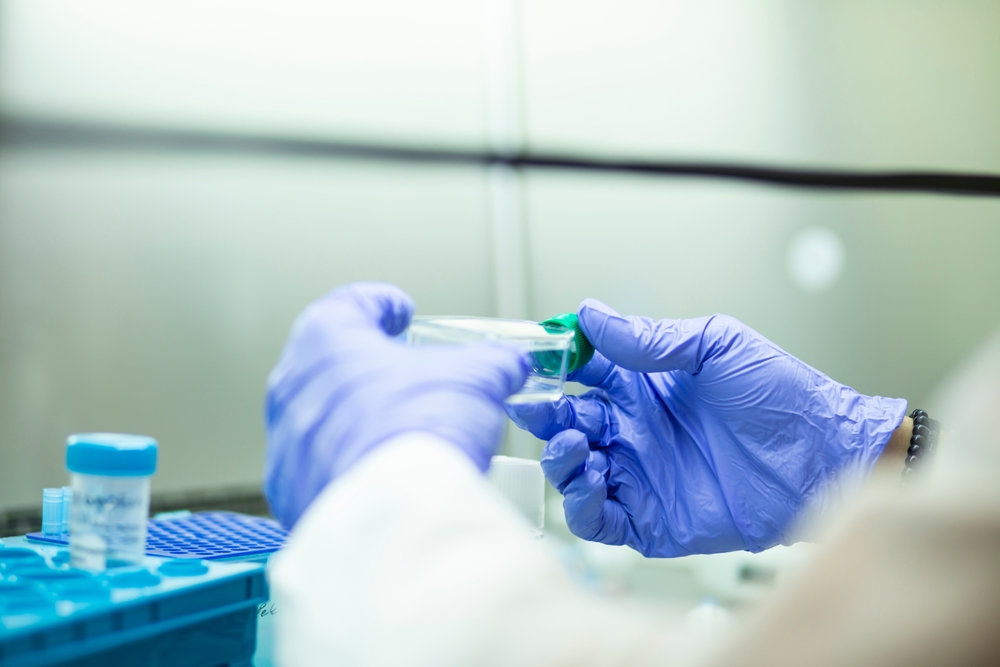‘Transformative’ trial boosts prostate cancer patients’ autonomy

Patients with lower risk cancer will be reassured radiotherapy alone is effective following surgery, avoiding the need for hormone therapy and its side effects.
Thousands of prostate cancer patients will benefit from results of a ‘practice-changing’ clinical trial which has, for the first time, tested the best duration of hormone therapy to use with radiotherapy following surgery.
Findings published on Thursday evening in The Lancet, showed that there was little benefit of additional hormone therapy for low-risk prostate cancer patients compared to using radiotherapy alone. For patients with a higher risk of their cancer returning, there was a greater benefit to a longer course of hormone therapy across two years, rather than a short course completed over six months.
Each year, around 7,000 people with localised prostate cancer have surgery to remove their prostate. Around 2,000 of these go on to have radiotherapy after the surgery and previously it has been unclear if they would also benefit from hormone therapy.
The study found that 79 per cent of men with lower-risk prostate cancer who were treated with radiotherapy alone survived without their cancer spreading and becoming incurable, after 10 years. This is compared with 80 per cent of those treated with six months of hormone therapy and radiotherapy. Researchers noted that this is a small difference and could be due to chance, showing no significant benefit of hormone therapy for lower risk patients.
For patients with a higher risk of their cancer returning, the benefits of six months versus two years of hormone treatment with radiotherapy were clearer. 72 per cent of those treated with the shorter course of hormone therapy survived without the initial cancer spreading after 10 years, compared with 78 per cent of those treated with the longer course. This showed that an extended course of hormone therapy could be more effective when treating advanced cancers.
The phase III RADICALS-HD trial, led by researchers from The Royal Marsden NHS Foundation Trust and the MRC Clinical Trials Unit at University College London, with funding from Cancer Research UK, outlined that these results will inform discussions between clinicians and prostate cancer patients to help both make decisions around cancer treatment, weighing up the efficacy of hormone therapy for the individual case.
Chief Investigator Professor Chris Parker, Consultant Clinical Oncologist at The Royal Marsden NHS Foundation Trust and Professor of Prostate Oncology at The Institute of Cancer Research, London, said: “The new information from this practice-changing study will ensure clinicians can better tailor treatment for prostate cancer patients following surgery and help facilitate important discussions. This will mean some patients receive a more effective treatment while sparing others unnecessary intervention.
“The trial showed encouraging results for radiotherapy alone so some patients, concerned with upsetting side effects of hormone therapy, can be reassured this treatment is a good option. Other patients, at higher risk of their cancer returning, can have a better understanding of how effective hormone therapy might be for them and help them to decide the best possible path of treatment.”
Senior author Professor Matt Sydes (MRC Clinical Trials Unit at UCL) said: “These results will help doctors and patients discuss treatment options and take informed decisions about whether having two years of hormone therapy is the right choice for them.
“For patients at higher risk of cancer spread, our study suggests two years of hormone therapy may be a better strategy than six months, although treatment decisions should be based on discussions between doctor and patient.”
Dr Anna Kinsella, a Science Engagement Manager at Cancer Research UK, said: “Every year there are around 52,300 new prostate cancer cases in the UK, that’s more than 140 every day. Comparing different treatment options is important to make sure people with cancer, and their doctors, have the information they need to decide what’s best for them.
The more treatment options we have available, and the more we understand about the best ways to use them, the closer we are to more people living longer, better lives, free from the fear of cancer.”
John Coyne, 62 from Surrey, was diagnosed with prostate cancer in February 2019 and treated with surgery at The Royal Marsden a couple of months later. For 18 months, his Prostate-Specific Antigen (PSA) level was undetectable. However, in December 2020, follow-up tests revealed his PSA levels were climbing, suggesting the cancer had not completely gone. John returned to the hospital where he recently chose to be treated with radiotherapy without hormone therapy.
He said: “My PSA levels, while rising, are still very low, so my doctors and I decided against adding hormone therapy to my treatment plan. I’m a very fit and active person and my weekly kickboxing sessions are important to me. As hormone therapy lowers testosterone and can have effects such as muscle wastage and a lower libido, I felt in my case, the benefit versus adverse effects wasn’t strong enough in favour of hormone treatment.
“The support I’ve received at The Royal Marsden has been excellent. The care I receive is personalised and I feel like I’ve been listened to by my team, with my needs being considered. This news will hopefully help more men in making an informed decision regarding their own personal situation and treatment plan.”
